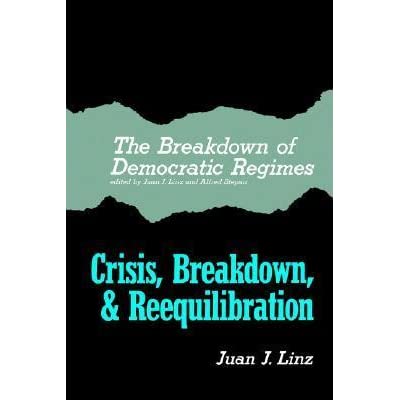
Halfhearted reform in response to the COVID-19 crisis will simply renew the invitation to populists to take up arms against liberal democracy, a leading analyst suggests.
A cautionary tale lies in the response across rich democracies to the financial crisis of 2008. Politicians then might have drawn two important lessons from the collapse of the world’s financial system and the economic recession that followed, FT columnist Philip Stephens contends:
- The “anything goes” capitalism of the so-called Washington consensus had led large segments of the electorate to withdraw their consent for this model of the market economy.
- And a version of globalisation that had served largely to enrich the top 1 per cent at the expense of most of the rest had discredited the case for liberal, open markets. Yet governments responded with austerity programmes that nationalised the losses of the financial sector and loaded them on to the shoulders of everyone else.

@NDITech
The health crisis is ringing the death knell of globalization and the hegemonic ideology of progress, analyst Alain de Benoist writes for Telos.
A return to austerity would be madness — an invitation to widespread social unrest, if not revolution, and a godsend for the populists, Stephens adds:
Over time — a long time — the fiscal bills will have to be paid. Liberal democracy, however, will survive this second great economic shock only if the adjustments are made within the context of a new social contract that recognises the welfare of the majority over the interests of the privileged….We may end up with what the French public servant Pascal Lamy calls “globalisation with Chinese characteristics”.
 The wider geopolitical effect of the COVIS-19 pandemic will likely turbocharge trendlines that were already creating a much more complicated and competitive landscape for the United States, argues William J. Burns, President of the Carnegie Endowment, National Endowment for Democracy (NED) board member, and author of The Back Channel: A Memoir of American Diplomacy and the Case for its Renewal.
The wider geopolitical effect of the COVIS-19 pandemic will likely turbocharge trendlines that were already creating a much more complicated and competitive landscape for the United States, argues William J. Burns, President of the Carnegie Endowment, National Endowment for Democracy (NED) board member, and author of The Back Channel: A Memoir of American Diplomacy and the Case for its Renewal.
More nationalism, less democracy?
In her 2017 book Pale Rider, the science journalist Lauren Spinney notes several ways in which the 1918–1919 influenza pandemic may have contributed to the instability of the interwar years, note Colin H. Kahl, co-director of Stanford University’s Center for International Security, and Ariana Berengaut, the director of programs, partnerships, and strategic planning at the Penn Biden Center.
 Revolution, civil war, and political instability rocked important nations. The world’s reigning liberal hegemon — Great Britain — struggled and other democracies buckled while rising authoritarian states sought to aggressively reshape the international order in accordance with their interests and values, they write for War On the Rocks. Even with compelling structural conditions pushing in one direction, the United States — the most powerful democracy on Earth — still has agency, Kahl and Berengaut add:
Revolution, civil war, and political instability rocked important nations. The world’s reigning liberal hegemon — Great Britain — struggled and other democracies buckled while rising authoritarian states sought to aggressively reshape the international order in accordance with their interests and values, they write for War On the Rocks. Even with compelling structural conditions pushing in one direction, the United States — the most powerful democracy on Earth — still has agency, Kahl and Berengaut add:
- It can take a page from fellow democracies such as South Korea and Germany, and show the world it can martial an effective response to the pandemic.
- It can take care of the urgent needs of the American people while also building a global coalition to combat the virus and the economic destruction it has wrought.
- It can strengthen its democratic alliances as the focal point for addressing shared challenges.
- It can seize the opportunity to rethink the fundamentals of globalization to shift it in a more egalitarian and resilient direction.
- And, it can do all of this in a way that shows the world that America’s enlightened self-interest and values can still be a lodestar for a stable international order.

National Endowment for Democracy
If the EU is to retain any credibility whatsoever as a club of democracies, it has no choice but to react quickly and sharply to the breakdown of Hungarian democracy, notes Amichai Magen, senior lecturer and the head of the program in diplomacy & conflict management at the Lauder School of Government, Diplomacy & Strategy, IDC Herzliya. The EU cannot kick Hungary out per se, but it can suspend its voting in EU institutions, cut its funding, isolate Orban diplomatically, and challenge the legality of the emergency law before the European Court of Justice, he writes for the Jerusalem Post:
At a time when Europe is reeling from Italy and Spain’s justified anger at having been deeply let down in their hour of greatest need, the EU simply cannot allow Hungary to become an overtly non-democratic member state. Either Viktor Orban has overplayed his hand this time, or the unravelling of the EU as a community of democracies is well and truly underway.
While much of Orbán’s rhetoric has been divisive and anti-democratic in the past, his party’s response to the coronavirus pandemic is unprecedented in terms of undermining Hungarian democracy, notes Michael Dedona of Boston University. In The Breakdown of Democratic Regimes, Juan José Linz asserts that crises are often manipulated by regimes in order to break down democracy. By declaring standard operating procedures as unable to appropriately address the crisis, the regime establishes an element of justification for their unprecedented behavior, he writes for Democratic Erosion.







